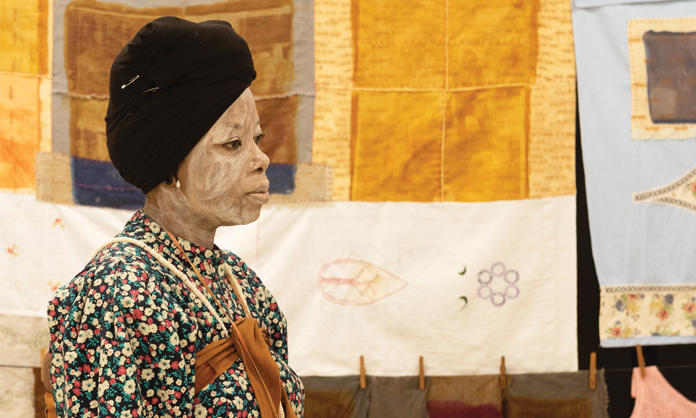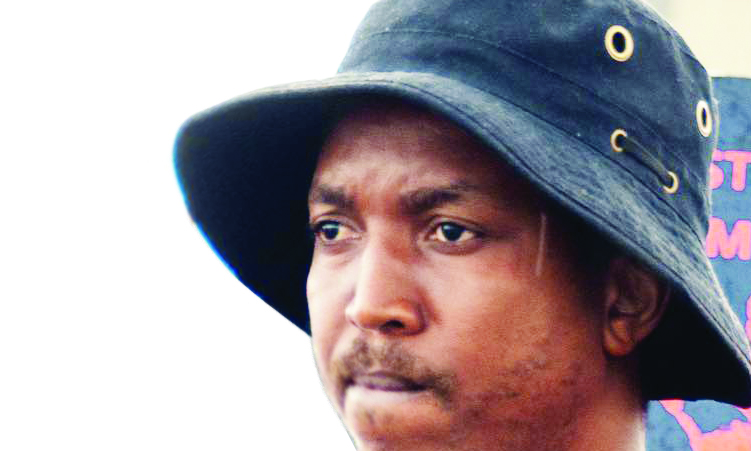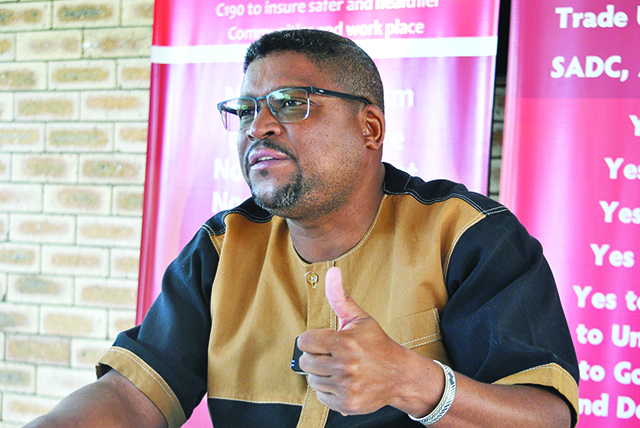Apartheid-era images of a smiling domestic worker and the pull of sacred Namibian fertility dolls form the basis of Tuli Mekondjo’s ‘Ousie Martha’.
Having recently debuted the performance art piece and installation at the Basler Afrika Bibilographien in Basel, Switzerland, the visual artist continues in her mining of international archives to unearth the vivid images and soundscapes that inform her practice.
“I visited the Basler Afrika Bibliographien in order to explore their photographs and sound archives. The very first images I encountered were a series of a woman doing laundry, ironing and carrying heavy metal washing basins filled with dirty water, with a cheerful demeanour,” says Tuli Mekondjo, who is currently amid a Deutsche Akademischer Austauschdienst (Daad) Artists-in-Berlin fellowship.
“Without knowing who she really was, she inspired me and I wanted to honour her and the many women at home who labour as domestic workers.”
As part of the performance at Basler Afrika Bibliographien, Tuli Mekondjo used Namibian sound archives to include the presence of ancestral voices singing songs of labour as they pound mahangu and work the soil.
The artist, with a fertility doll on her back, then sang, washed and moved within a ritual space strung with washing lines featuring transferred images of Ousie Martha stitched onto various garments, fabrics and embroidered table cloths.
“I wanted to engage with the ancestral voices by responding, singing with them, mimicking their acts of labouring while they sang. I wanted to bring Ousie Martha into that space, but to do the laundry for her,” says Tuli Mekondjo.
The ‘Ousie Martha’ of the title is based on a real person who worked as a domestic worker for a missionary at Okahandja in 1953.
Though the work is visually inspired by an individual, Ousie Martha’s life and work is symbolic of domestic workers as a collective.
“I wanted to take them all out of the archives and into the streets for their voices to be heard, their labouring acts to be visible and to say: Your societies are built on the sweat of our brows, the bending of our backs, the bleeding of our spirits and the calluses on our hands. Look at us,” says Tuli Mekondjo.
Through the piece, which Tuli Mekondjo hopes to reconfigure for different platforms in Namibia, the artist aims to make the narratives of Namibian women louder and more visible, particularly when apartheid and colonial era spatiality, servitude and economic inequality persist to this day.
“In a country like Namibia, it’s very difficult for domestic workers to walk away from these roles of servitude. These roles have been indoctrinated during colonial regimes.
“They continue today because of inequality, poverty, corruption and the lack of a proper social security system to support domestic workers,” says Tuli Mekondjo.
“The fear of losing one’s domestic job in Ludwigsdorf is stronger than the need to march for a minimum wage increment and for better working conditions,” Tuli Mekondjo says.
“It’s important to begin the process from these spaces of memory and trauma in order to better understand the struggles of women in my society,” says Tuli Mekondjo.
“In Switzerland, Germany and Europe in general, they need to be re-reminded of the horrors of colonialism and the traumas they inflicted,” Tuli Mekondjo says.
“What are the colonial indoctrinations and residues of these traumas and how are they still shaping us today?”
– martha@namibian.com.na; Martha Mukaiwa on Twitter and Instagram; marthamukaiwa.com
Stay informed with The Namibian – your source for credible journalism. Get in-depth reporting and opinions for
only N$85 a month. Invest in journalism, invest in democracy –
Subscribe Now!






